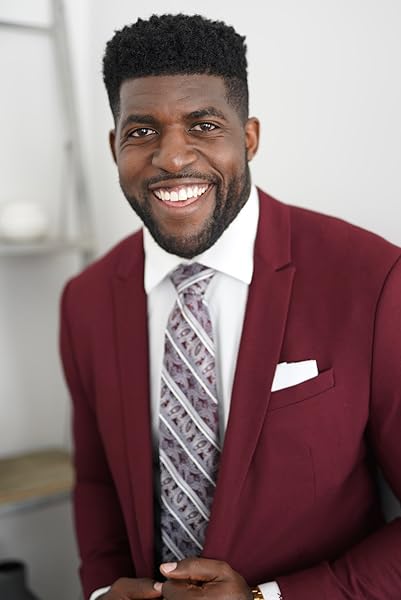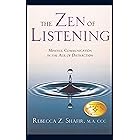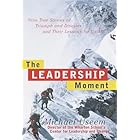Your Memberships & Subscriptions

Download the free Kindle app and start reading Kindle books instantly on your smartphone, tablet, or computer - no Kindle device required.
Read instantly on your browser with Kindle for Web.
Using your mobile phone camera - scan the code below and download the Kindle app.





Image Unavailable
Color:
-

-
-
- To view this video download Flash Player
-

-
 VIDEO
VIDEO -

 Audible sample Sample
Audible sample Sample 


Uncomfortable Conversations with a Black Man Kindle Edition
INSTANT NEW YORK TIMES BESTSELLER
An urgent primer on race and racism, from the host of the viral hit video series
“Uncomfortable Conversations with a Black Man”
“You cannot fix a problem you do not know you have.” So begins Emmanuel Acho in his essential guide to the truths Americans need to know to address the systemic racism that has recently electrified protests in all fifty states. “There is a fix,” Acho says. “But in order to access it, we’re going to have to have some uncomfortable conversations.”
In Uncomfortable Conversations With a Black Man, Acho takes on all the questions, large and small, insensitive and taboo, many white Americans are afraid to ask—yet which all Americans need the answers to, now more than ever. With the same open-hearted generosity that has made his video series a phenomenon, Acho explains the vital core of such fraught concepts as white privilege, cultural appropriation, and “reverse racism.” In his own words, he provides a space of compassion and understanding in a discussion that can lack both. He asks only for the reader’s curiosity—but along the way, he will galvanize all of us to join the antiracist fight.
- LanguageEnglish
- PublisherFlatiron Books: An Oprah Book
- Publication dateNovember 10, 2020
- File size1872 KB
Customers who bought this item also bought
 And white privilege is about the word white, not rich. It’s having advantage built into your life. It’s not saying your life hasn’t been hard; it’s saying your skin color hasn’t contributed to the difficulty in your life.Highlighted by 1,163 Kindle readers
And white privilege is about the word white, not rich. It’s having advantage built into your life. It’s not saying your life hasn’t been hard; it’s saying your skin color hasn’t contributed to the difficulty in your life.Highlighted by 1,163 Kindle readers What I’m saying is that a white person’s skin color isn’t the thing contributing to holding them back, and that for all black people, their skin color contributes to what’s hard about their lives no matter what other privileges they might enjoy.Highlighted by 1,011 Kindle readers
What I’m saying is that a white person’s skin color isn’t the thing contributing to holding them back, and that for all black people, their skin color contributes to what’s hard about their lives no matter what other privileges they might enjoy.Highlighted by 1,011 Kindle readers LBJ said it best: “You can’t shackle and chain someone for hundreds of years, liberate them to compete freely with the rest and still justly believe that you’ve been fair.”Highlighted by 693 Kindle readers
LBJ said it best: “You can’t shackle and chain someone for hundreds of years, liberate them to compete freely with the rest and still justly believe that you’ve been fair.”Highlighted by 693 Kindle readers
From the Publisher
|
|
|
|
|---|---|---|
|
|
|
|

Editorial Reviews
Amazon.com Review
Review
"This book from the former NFL player and current Fox Sports analyst provides a new voice in the dialogue about racism." ―Washington Post
"This incredibly important book tackles all the race-related questions people have but are afraid to ask." ―GMA.com
“What Emmanuel Acho has to say is important.” ―Matthew McConaughey
"The author delivers exactly what he promises in the title, tackling difficult topics with the depth of an engaged cultural thinker and the style of an experienced wordsmith. Throughout, Acho is a friendly guide, seeking to sow understanding even if it means risking just a little discord." ―Kirkus Reviews
"An absolute must-read...Emmanuel Acho dives into important subjects like cultural appropriation and white privilege, urging you to find a way to join in the fight against racism." ―Cosmopolitan
About the Author
Product details
- ASIN : B08BKMV54M
- Publisher : Flatiron Books: An Oprah Book (November 10, 2020)
- Publication date : November 10, 2020
- Language : English
- File size : 1872 KB
- Text-to-Speech : Enabled
- Screen Reader : Supported
- Enhanced typesetting : Enabled
- X-Ray : Enabled
- Word Wise : Enabled
- Sticky notes : On Kindle Scribe
- Print length : 246 pages
- Page numbers source ISBN : 1529064074
- Best Sellers Rank: #205,527 in Kindle Store (See Top 100 in Kindle Store)
- #19 in Multicultural Education Methods
- #123 in Discrimination & Racism Studies
- #135 in African American Studies
- Customer Reviews:
About the author

Emmanuel Acho grew up in Dallas with his three siblings, the son of Nigerian immigrant parents. In 2012 he was drafted into the NFL by the Cleveland Browns, and later played with the Philadelphia Eagles, while earning a master’s degree in sports psychology at the University of Texas in the off-seasons. In 2016 he left the NFL for ESPN, where he served as the youngest national football analyst, and was named a 2018 Forbes Under 30 Selection. He is now a Fox Sports analyst and the creator of the ongoing online video series “Uncomfortable Conversations with a Black Man.”
Customer reviews
Customer Reviews, including Product Star Ratings help customers to learn more about the product and decide whether it is the right product for them.
To calculate the overall star rating and percentage breakdown by star, we don’t use a simple average. Instead, our system considers things like how recent a review is and if the reviewer bought the item on Amazon. It also analyzed reviews to verify trustworthiness.
Learn more how customers reviews work on AmazonReviews with images
-
Top reviews
Top reviews from the United States
There was a problem filtering reviews right now. Please try again later.
I was, however, intrigued by the title of this book, in part because I have always found every occasion with the greatest opportunity to teach us about ourselves just a little uncomfortable. And like a lot of people of every race I am at a loss to explain why we are still having the black/white conversation. Not that we don’t need to have it, mind you, now more than ever, but how can that be? Is somebody putting something in the water?
The answer is yes, figuratively speaking, but first a little about the style and structure of the book. The book is true to its title, which you don’t always find these days. Emmanuel starts each chapter with the kind of question on a lot of white minds (questions that he has actually received, not softballs of his own making) and then proceeds to answer that question in a rational, common sense way. He uses the word “uncomfortable” a lot but if this book makes you uncomfortable there is no honest book on this topic that is going to be acceptable to you.
Many of the questions have to do with the whole notion of systemic. Is racism systemic? Of course it is. How could we possibly live in our current world and it not be systemic?
I think there are two issues that give rise to this argument/confusion. The first has to do with mathematics. In any data pool there is never going to be one of anything. Of course there is black-on-black violence. But there is plenty of white-on-white violence, too. The race of the participants is meaningless. And while there must certainly be angry black men, I have met no shortage of angry white men as well. There might even be more of the latter, even on a per capita basis. (Did you follow the election on either side?)
The second issue is the whole institution of vocabulary and the words on which it is built. Words do not exist naturally, like rain or bauxite. We made words up to assist in our communication. Which means that we made them up in our own image, to rationalize our personal worldview. But that is why words must be understood in the context of those with the power to shape the vocabulary. Of course all lives matter, but there is no context to that phrase. It is meaningless and clearly not on a par with black lives matter. The latter has context and cannot be conflated with nothingness.
The word that I believe fuels racism the most is seldom mentioned – merit. The most common fallacy you hear from racists and supremacists is that the US is a meritocracy. If one race isn’t getting ahead to the same degree it’s only because they aren’t trying as hard. That’s baloney. Merit may count, in the US more than elsewhere perhaps, but we do not live in a meritocracy or anything close to it. (And don’t bring up the Asian comparison. Again, context. Asian immigrants go through a double selection process that blacks do not.)
Getting ahead is not a meritocratic process. Again, it only exists in context. Even in sports. Name the five greatest linebackers of all time. You will be wrong. You are entitled to your opinion and there are some that are better than others and that is obvious to everyone. But the best? Football is a team sport. It’s played under different playing conditions every game, and against teams of forever changing skills and talent. Even the rules change over time.
Which is also why the fact that there are wealthy and successful black people is irrelevant. So what? What does that have to do with racism? On any objective basis, nothing.
And why I believe we have to change two things before we can create a more fair and just society. The first is that we must change the way in which we fund education. The belief that rich families deserve better education is an extension of the meritocracy myth. And we must take the money out of politics. Money is structurally racist. Of that there can be no denial. (For every wealthy black entertainer or athlete there is a gaggle of super-wealthy white hedge fund managers.) And as long as there are our politics will continue to be structurally racist. We promote what we are.
Emmanuel’s ultimate suggestion is just to talk. Let’s get the issues into the open and start a dialogue. I am all for that but do not believe that will solve the problem until we are ready to put that dialogue in context and to understand that the exception does not invalidate the rule.
I want my daughters to see color. I just want them to see it in context. I want them to see it for what it is. It is color; nothing more, nothing less. To say that you don’t see color is to say, in fact, that color is everything.
This is a very good book, well written, and while it addresses a lot of questions that ignore context in their asking, what Emmanuel ultimately does is to put those tough questions into the right context. We should listen.
Author Emmanuel Acho does not speak from a place of hate, but from a place of concern, justified anger, and a serious desire for things to change. People that submitted the questions that he answered in this book had some pretty interesting ideas, including some questions that I had myself, and it was nice to have them answered in some form, if not definitively. I found this book to be educational and enlightening, and it has certainly given me a lot to think about. There are a few ideas that I found myself disagreeing with it first, but Acho does a terrific job backing up his statements with a lot of research, so I can definitely see where he’s coming from in the end. I think the most important thing that I took from this, is that as a 30 something white person, one of the most important things I can do is keep an open mind, and be willing to change my thoughts and feelings if ever necessary. I definitely do not consider myself racist, but I’m sure I’m far from perfect.
One of the easiest examples I can think of for a way that I’ve already changed my feelings about an aspect of the topics covered in this book, was how I feel about the National Anthem kneeling protests. I still completely understand why both sides feel as passionate as they do about it, and I think everyone is entitled to their feelings, but I have personally felt a shift about this over the last few years. Originally I saw it as disrespectful and it was at least mildly upsetting to me, until it was explained to me that it was a peaceful protest and a respectful one. Kneeling is non-violent, and does nothing to desecrate the American flag, unlike many of the protest during the Vietnam war, where the symbol of America was often burned, torn down, or stepped on. Like I said, I don’t expect everyone to completely change their stance on this, but I definitely understand more of where the protesters are coming from than I did before. This is just one of many aspects of these conversations that really should take place with everyone, and I think this book is a terrific first step for anyone that wants to broaden their mind and feelings about racism and race in general in this country. I would honestly love to have a conversation with Mr. Acho if I ever had the chance, in this book is written as if he were speaking to you directly, and I think that is a very important and positive choice.
Emmanuel Acho very succinctly, movingly, and informatively wrote this as an extension of his videos. Well thought-out and written.
Top reviews from other countries
He explains how black people are still oppressed in America and what systemic racism is, by citing some serious studies. Emmanuel is concise and to the point. He clearly explains what white privilege is, why cultural appropriation is a slippery slope and why using the “n’ word and black face is never acceptable.
White people are part of the solution. At the end of each chapter, he lists things we can do to support equality and be an ally. The suggestions range from reflecting on our privilege and implicit bias and having uncomfortable conversations with our black friends to supporting movie/song/poem/books and being involved in data collection, elections, diversity committees, attending protests, signing petitions, and much more. He went so far as to list specific ones to check out.
His perspective is american though. I found myself curious about how things compared in Canada. A lot is tied up in academic study. Few newspaper articles takled the subject. Start with Statistic Canada. They have done some great studies and its public.




















